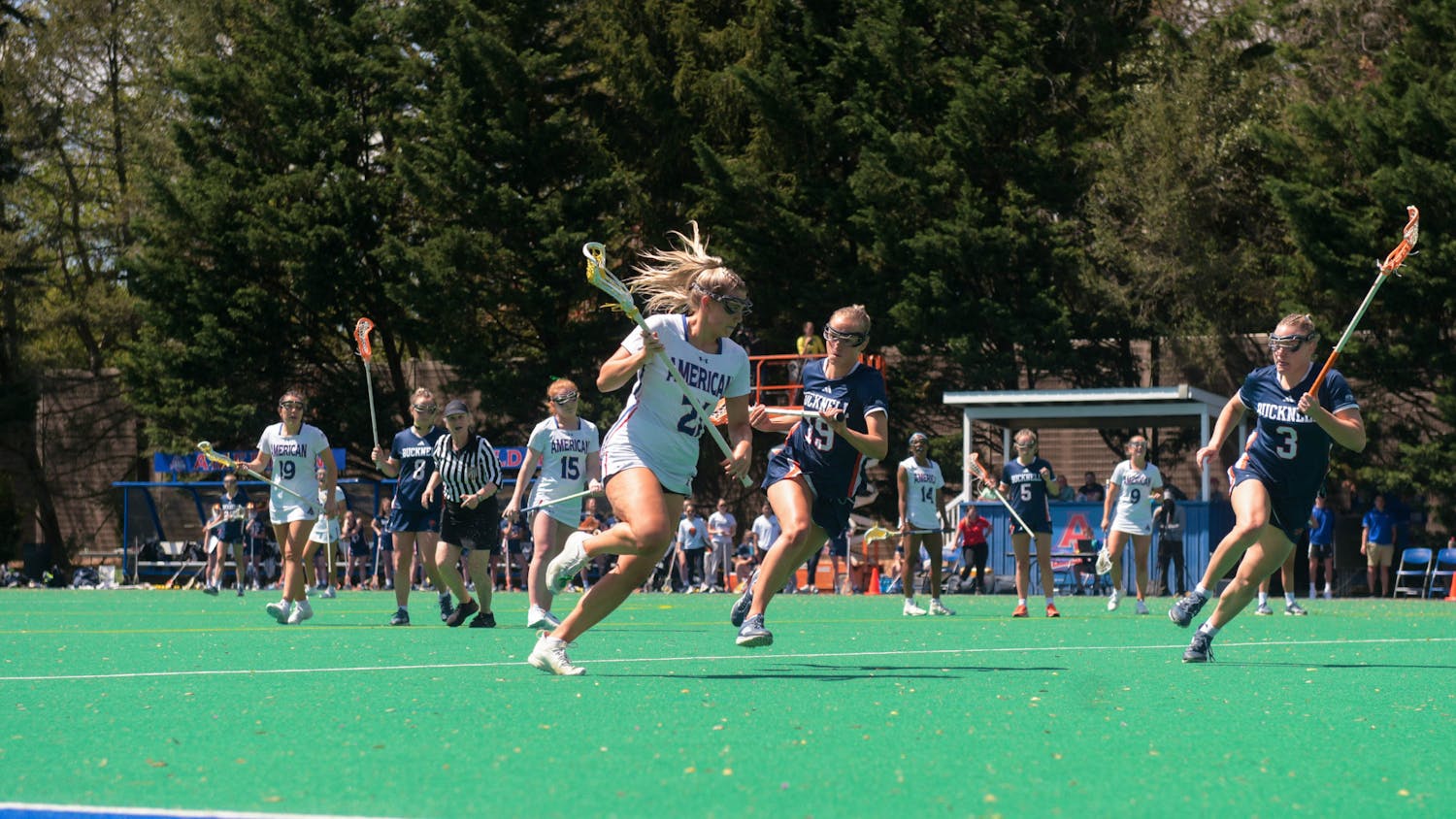Clarification appended
It’s no secret that sexual assault is one of the most urgent issues facing this University. When BuzzFeed reported on March 8 that AU student Faith Ferber was filing a Title IX complaint with the Department of Education over the handling of her case, it was dismaying but not surprising.
That Ferber’s case unfolded after the Education Department began investigating AU for sexual violence violations last March discourages us. AU has made efforts to combat sexual assault since the investigation was launched. We wrote in September that mandating Empower AU prevention training was “a major step to fight back.” The formation of the Sexual Assault Working Group signals an affirmative commitment to progress.
But as The Eagle’s cover story makes clear, AU has a long way to go in improving the reporting and disciplinary process in sexual assault cases. Ferber’s situation shows that reporting sexual assault can be confusing and alienating to survivors. The disciplinary process is slow, non-transparent, and difficult to navigate. We can and must do better.
The confidentiality agreement AU forced Ferber to sign is a seemingly clear cut violation of Title IX, which explicitly states that “colleges and universities may not require a complainant to abide by a non-disclosure agreement, in writing or otherwise.” Gail Hanson and Rod Hradsky asserted that AU’s Honesty and Confidentiality policy was not an NDA, but this is a distinction without a difference. Furthermore, we take issue with AU asking a survivor to change or delete a Facebook status discussing her disappointment with the hearing outcome or risk a Student Conduct violation.
There are also unanswered questions about the timeline in Ferber’s case. Why did it take 20 days to report the assault when the Clery Act states campus crimes should logged within two days? Why did it take until late October 2015 to begin the conduct process when the first report was in early April? Title IX guidelines encourage schools to complete the entire process within 60 days after the initial report. We see no reason why those timelines should not be heeded.
The sheer complexity of the entire process is difficult to wrap one’s mind around. Administrators struggled to give clear answers to simple questions as Eagle staff writers reported this story. To whom do you report an incident of sexual assault? Who is and isn’t obligated to report what they hear to University administrators? How does the disciplinary process work? Which crimes warrant which punishments? Who renders judgement on an allegation and who makes sure verdicts are enforced?
Surely there must be some level of confidentiality and discretion when adjudicating such sensitive matters as sexual assault allegations. But it should not prevent survivors from being able to tell their stories if they want to. Students should not be forced to sign something they don’t understand.
The University bureaucracy at AU has grown vast, secretive, and unaccountable to students. It is frustrating to deal with if one does not know how to navigate the system. In Ferber’s case, administrators were insensitive and cold, in our view. They seem to behave under the assumption that all sexual assault survivors want swift closure rather than justice.
Ensuring the health and well-being of students has to be AU administration’s first priority. Last year’s Title IX complaint was a wake-up in that regard. While we’ve made real progress, Ferber’s case calls that commitment into question.
Sexual assault will almost certainly happen again at AU. The University needs to work with students to reform its approach and make sure this botched administrative response is not repeated.
--E
edpage@theeagleonline.com
Clarification: The editorial previously used the phrase "unwanted advance" in place of "assault" in the fifth paragraph. Upon further consideration, we believe "assault" was more clear in describing the incident.




